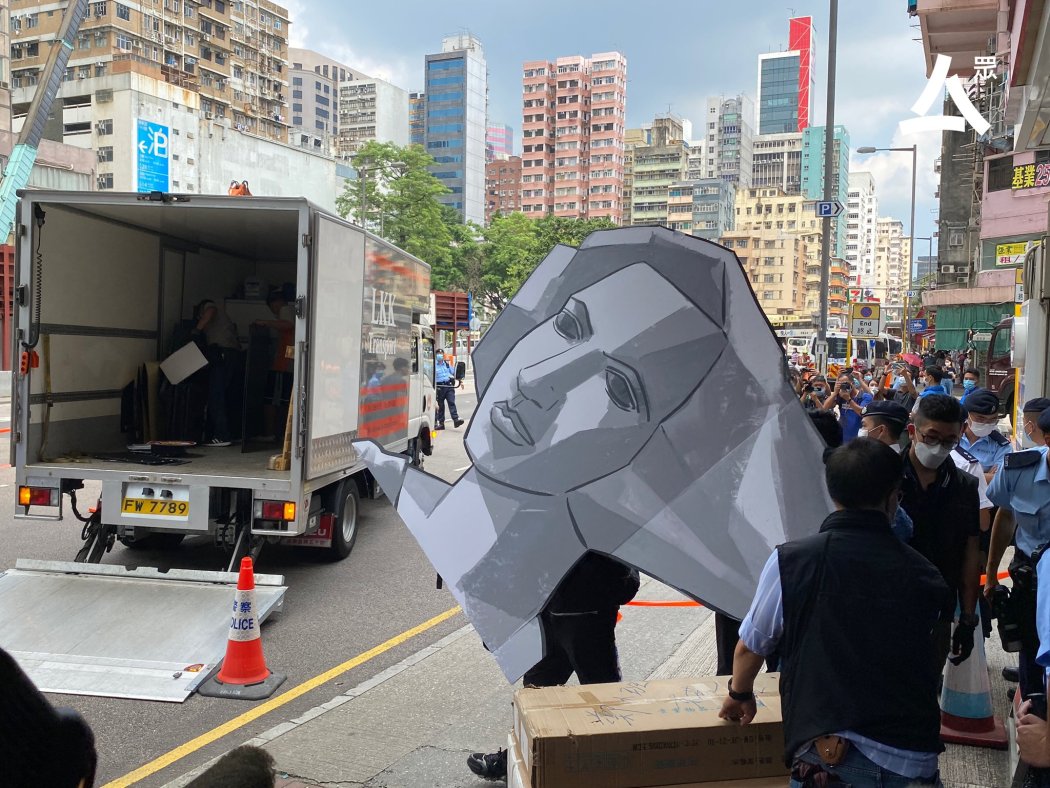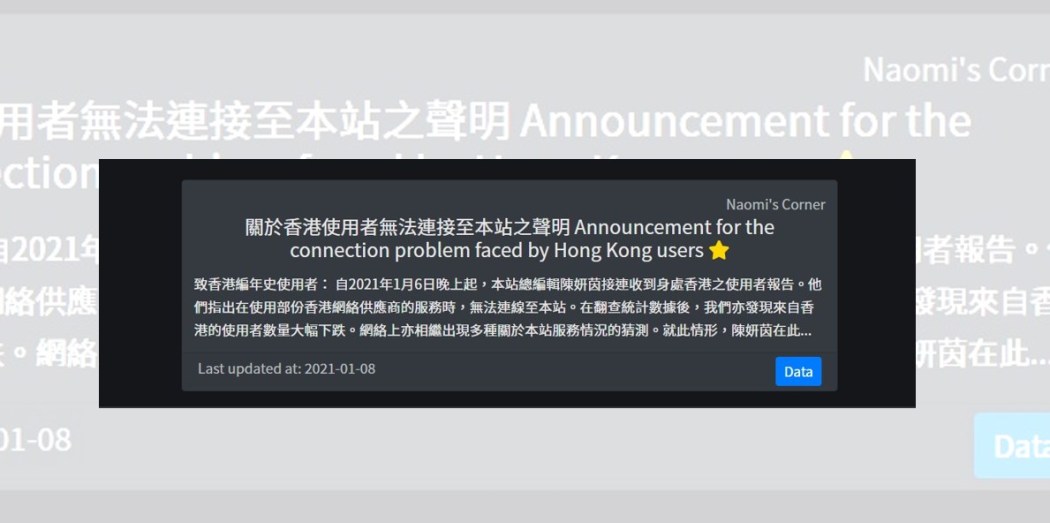The online “June 4th Museum,” preserving the memory of Beijing’s bloody crackdown on protesters in 1989, has become inaccessible via several of Hong Kong’s major telecom providers. It comes less than two months after the site was first launched and three weeks after police confiscated exhibits at a separate, real-life museum in Hong Kong.
HKFP confirmed that “8964museum.com” was unavailable via Smartone, China Mobile Hong Kong, 3HK and CSL on Wednesday. The site was however still accessible via VPN services and from abroad.

The website is also unavailable via HKBN, according to StandNews, though HKFP found it to be accessible via the HGC Global Communications Internet Service Provider (ISP).
The site displayed a virtual archive of key events and figures of the student-led demonstrations in mainland China that ended in a crackdown by the People Liberation Army, leaving hundreds, perhaps thousands, of civilians dead.
The virtual museum was launched in early August, after authorities forced a physical museum to close for operating without a proper licence. The group behind it, the now-disbanded Hong Kong Alliance in Support of Patriotic Democratic Movements of China, said the website was administered by an independent team as a precaution, citing “intensified political pressure.”

But earlier this month, police had raided the shuttered museum and were seen taking away exhibits as evidence against the Alliance under a security law crackdown.
The Alliance voted to disband last Saturday, after police launched a national security probe and a series of enforcement measures against the group. It had refused to comply with a data request. Within one month, authorities had arrested its key members, raided its premises, frozen its assets, and charged the group and its core leadership under the security law.

The online museum had remained live after police ordered the Alliance to remove its digital presence in mid-September.
All reference to the massacre is censored by the authorities in mainland China. Annual vigils organised by the Alliance to commemorate the crackdown in Hong Kong were widely seen as a symbol of the city’s promised freedoms and autonomy.
HKFP has reached out to telecom providers for comment.
Rise of internet censorship
In January, an anti-government site HKChronicles became unavailable in Hong Kong.
HKBN confirmed to HKFP that it had blocked the site at the behest of the police under the security law.

Article 43 of the law provides the police with powers to order a person or service provider to delete or assist in the removal of information published online in the interests of protecting national security.
The move in January sparked fears among online commentators that the authorities would use the security law to censor internet content, much as the “great firewall” is used in mainland China, where Beijing heavily censors its citizens’ access to major online platforms — including Facebook, YouTube and Google.
HKFP has reached out to the police and Security Bureau for comment.
Support HKFP | Policies & Ethics | Error/typo? | Contact Us | Newsletter | Transparency & Annual Report | Apps
Help safeguard press freedom & keep HKFP free for all readers by supporting our team
























